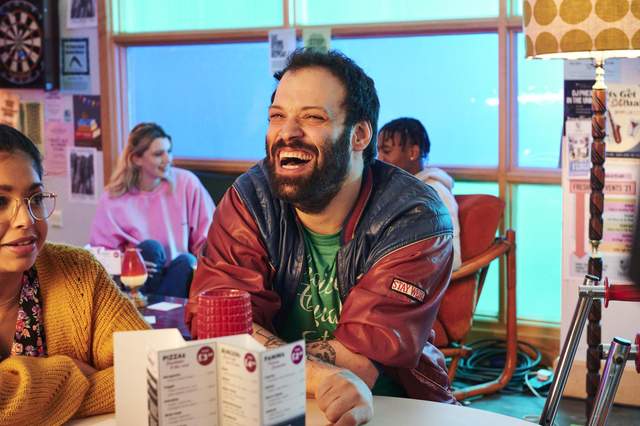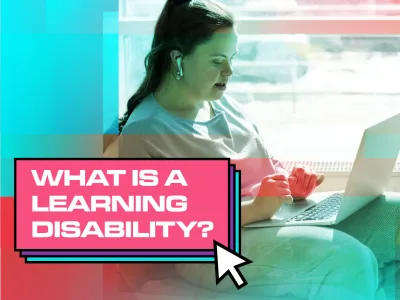
Disability On TV: An Interview With Comedian, Tim Renkow
The month of July is Disability Pride Month, which can mean various things to different people. The disabled community is diverse, so individuals with disabilities may vary in their thoughts and feelings regarding the month.
We want to shine a light on how to be a better ally to the disabled community and highlight the need for an increase in representation on mainstream TV, social media, and YouTube, so that everyone has their voices heard.
In one of our recent Youth Rising episodes, team member Paige spoke to stand-up comedian and star of BBC’s BAFTA nomination show, Jerk, Tim Renkow, on his motives for getting into comedy and why representation matters. Check out their conversation below, and for the full episode, click here!
Hi Tim! What was your motivation to get into comedy and stand-up?
My motivation was very surface level. It was the only thing I could do to make money. So, I mean, I can lie if you want me to say it was my dream from birth, but it wasn't! There was an open mic near my school. I was going to art school and I was not enjoying it because I can't take myself seriously enough to be an artist. I just couldn't take it seriously. And then there was a stand-up show, in the club next to the dorm. And so I did it one night and I won like 20 bucks!

How did you get to the point where you could laugh at yourself?
That is the first new question I've been asked in like five years, well done for that! That's a really good question. I guess it's my mum. My mum never took herself that seriously. We would always be encouraged to tease each other gently. And I guess that's where it started. It just gets exhausting taking it so seriously. And also, this is silly, but it's not like I don't take myself seriously, but I also don't take humanity that seriously, like as animals. I don't think we're as good as we think we are. And it just seems super critical not to take the rest of people seriously but to take myself seriously.
Your BBC series Jerk, really pushes boundaries. Your main character is Tim who has Cerebral Palsy. Obviously, he's not a very likeable character. He's a bit of a jerk. How similar are you really to him?
Well, what I always say is, he’s me if I had no ambition. If I was turned up to 11, I'd be him. Most of the stuff he's done to screw with people I've done, and the stuff I haven’t done I definitely have thought about doing!

How do you think the show and showcasing your disabilities and talking about it can help young people?
The obvious answer is visibility always helps, especially in the case of disability where I feel most of the obstacles I’ve run into dealing with people have been based purely on ignorance and not malice. In the case of disabilities specifically, if you take away that ignorance you'd take away most of the prejudice.
My final question is what was one thing you wish young people knew about living with a disability or just people in general?
Young people seem to know more than I do. I mean, you guys are doing good. I've sadly passed the point of a young person, by quite some time now so I've given up hope, which is what young people have. I would say this because I've been noticing there's a lot of concentration on mental pain right now. Which is good, but I feel physical pain gets belittled. And I just tell people to remember that both physical pain and mental pain are equally valid. Don’t belittle one for the other. I think young people are doing pretty good by themselves. You don't need an old fart to give advice to them. You figure it out!
Don’t forget to check out the full episode, where the team also chat to journalist, influencer and Pantene UK ambassador, Lucy Edwards - known as #BlindNotBroken on Instagram - about being a blind content creator, losing her eyesight aged 17 and why she chose to vlog. And they sit down with influencer and Makaton vlogger, Isabella Evans, aka Isabella Signs, to talk about the importance of communication. Find the full episode here.



